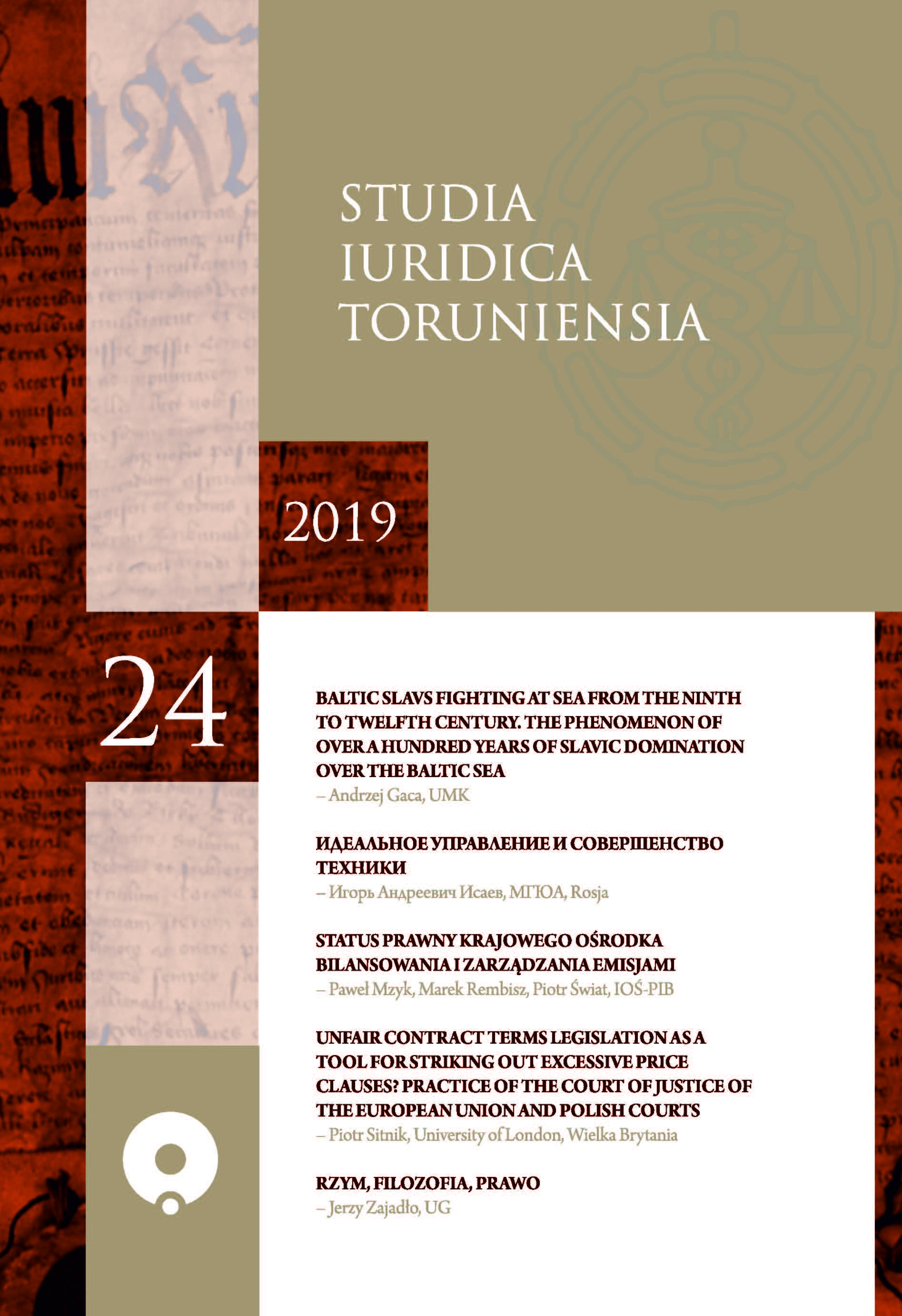The convolution of facts and norms: new approach to legal reasoning and interpretation
DOI:
https://doi.org/10.12775/SIT.2019.008Keywords
new legal realism, interpretation of facts, legal reasoning, fact-norm convolution, adequate law, responsive lawAbstract
My purpose is to show that facts and norms in real life are intermingled and cannot exist without symbiotic convolutions with each other. Keeping facts and norms as close as possible in the minds of interpreters is a pragmatic advise that can contribute to a better understanding of legal problems. Facts and norms in the process of law application exert a great deal of influence on each other. This dynamics of hidden, unspoken discourse between facts and norms creates meanings that all experts in law should be able to understand. Many legal professionals have quite limited capability of understanding the meaning of facts. It is related to the some fallacies of legal education. There is not enough attention paid to psychology and sociology in education of young lawyers. Lawyers should be better prepared to understand the culture of human beings and not just studying the art of playing with words in the statutory law enacted by parliaments.
References
Celano B., Preconventions. A Fragment of the Background, “Revus. Journal for Constitutional Theory and Philosophy of Law” 2016, http://revus.
revues.org/3386 (access: 12.07.2019).
Ehrlich E., Grundlegung der Soziologie des Rechts, Munchen–Leipzig 1913.
Erlanger H. S., Garth B., Larson J. E., Mertz E., Nourse V., Wilkins D. B., Is it Time for a New Legal Realism? “Wisconsin Law Review” 2005, No 2, Univ. of Wisconsin Legal Studies Research Paper No 1015,
https://ssrn.com/abstract=896762 (access: 15.07.2019).
Lamentowicz W., The Emergence of the Legal Order, “Studia Iuridica Toruniensia” 2018, Vol. 23.
Leiter B., American Legal Realism, in: The Blackwell Guide to the Philosophy of Law and Legal Theory, W. Edmundson, M. Golding (eds.) Oxford 2009.
Miles T. J., Sunstein, C. R., The New Legal Realism, “University of Chicago Law Review, Forthcoming”; University of Chicago Law & Economics, Olin Working Paper No 372, Public Law Working Paper No 191, http://ssrn.com/abstract=1070283 (access: 7.05.2019).
Nelken D., Law in Action or Living Law? Back to the Beginning in Sociology of Law, “Legal Studies” 1984, Vol. 4.
Nonet P., Selznick P., Law and Society in Transition: Toward Responsive Law, New York 1971.
Nourse V., Shaffer G., Varieties of New Realism: Can a New World Order Prompt a New Legal Theory?, “Cornell Law Review” 2009, Vol. 95.
van Klink B., Facts and Norms: The Unfinished Debate between Eugen Ehrlich and Hans Kelsen, 2006, http://ssrn.com/abstract=980957 (access: 10.06.2019).
Searle J.R., How to Derive “Ought” from “Is”, “The Philosophical Review” 1964, Vol. 73.
Visegrady A., The Dialectics of Social Relations and Legal Norms in the Judicial Application of Law, “Soziologische Jurisprudenz und realistische
Theorien des Rechts / Sociological Jurisprudence, Rechtstheorie. Beihefte”, Band 9, XVI, 1986.
Zieliński M., Wykładnia prawa: zasady, reguły, wskazówki, Warszawa 2017.
Znamierowski Cz., Podstawowe pojęcia teorji prawa. Część pierwsza: Układ prawny i norma prawna, Poznań 1924.
Downloads
Published
How to Cite
Issue
Section
Stats
Number of views and downloads: 993
Number of citations: 0



